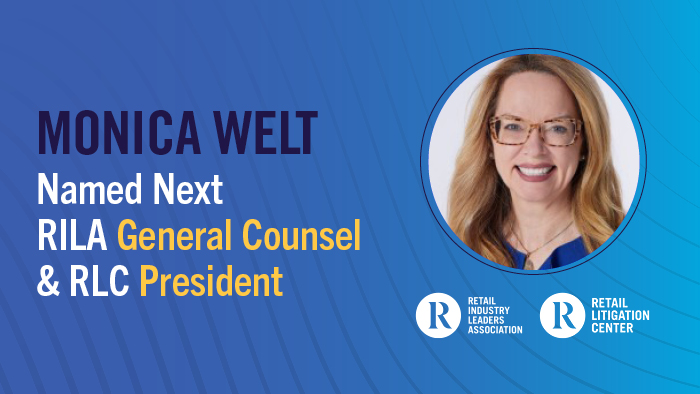Retailers to SCOTUS: Text STOP to End TCPA Abuse
- By [ Deborah White ]
- Washington, DC
- 03/03/2020
Retailers told the U.S. Supreme Court this week that text messages from consumers’ favorite retailer or pharmacy or their children’s school are in jeopardy of extinction. Why? Those who send these communications face unchecked potential liability unless the U.S. Supreme Court steps in and settles the ambiguity in the governing law.
“The TCPA is broken and puts conscientious retailers in an impossible position,” Retail Litigation Center President and Retail Industry Leaders Association General Counsel Deborah White said, referring to the federal Telephone Consumer Protection Act (TCPA). “Consumers want the convenience of receiving text communications from businesses that they trust, but that communication is being threatened by the current state of the law which makes good faith compliance with the TCPA nearly impossible. The Supreme Court needs to step in, clarify the scope of TCPA and tell the plaintiffs’ bar to STOP abusing the law.”
“From our perspective, the issue is clear: Striking down the automated call ban in the TCPA would stop abusive and counterproductive litigation without subjecting consumers to abusive and counterproductive communications from our members,” National Retail Federation Chief Administrative Officer and General Counsel Stephanie Martz said. “Retailers value their customers’ loyalty and have no desire to alienate them by hitting them with unwanted texts or phone calls. What we want is a clear and workable legal standard, which is currently sorely lacking.”
The Retail Litigation Center (RLC) and National Retail Federation (NRF) filed an amicus brief with the Supreme Court on Monday asking the court to settle ambiguity in the TCPA. The brief, filed in Barr v. American Association of Political Consultants Inc., explains the harm that abuse of the TCPA is having on consumers who are deprived of wanted communications and on retailers subjected to virtually unlimited liability.
The TCPA was enacted in 1991 to protect consumers from telephone marketing “robo-calls.” Since then, it has been hijacked by the plaintiffs’ bar to extort payments from unknowing business that communicate with consenting customers via text or phone calls.
The RLC and NRF said it is common for a consumer to provide a mobile phone number to a business with consent to be contacted, but for the calls or texts to be received by someone else. Occasionally this occurs because the consumer mistakenly provided the wrong number. More frequently, it happens because the original owner gets a new number, and the original number they’ve given permission to be contacted at is reassigned to another person. Retailers have no way of knowing if a phone number has been reassigned but self-described “professional plaintiffs” and their attorneys seek out reassigned numbers as winning lottery tickets where they can sue message senders to extort settlements in the millions of dollars. Their abuse of the TCPA will continue harming the ability of businesses to communicate with their customers until the federal government acts.
###
Retail Litigation Center
Directed by the chief legal officers of the country's leading retail companies, the Retail Litigation Center (RLC) is the only organization dedicated to advocating for the industry's top priorities in the federal and state judiciary. The RLC also works with leading law firms and retail corporate counsel to develop forward-thinking strategies to combat meritless mass action litigation. Founded by the Retail Industry Leaders Association (RILA) in 2010 as an independent organization, the RLC is a 501(c)(6) membership association open to all retailers and select law firms.
National Retail Federation
The National Retail Federation, the world’s largest retail trade association, passionately advocates for the people, brands, policies and ideas that help retail thrive. From its headquarters in Washington, D.C., NRF empowers the industry that powers the economy. Retail is the nation’s largest private-sector employer, contributing $2.6 trillion to annual GDP and supporting one in four U.S. jobs — 42 million working Americans. For over a century, NRF has been a voice for every retailer and every retail job, educating, inspiring and communicating the powerful impact retail has on local communities and global economies.
Tags
-
Legal Affairs & Compliance
-
Retail Litigation Center



